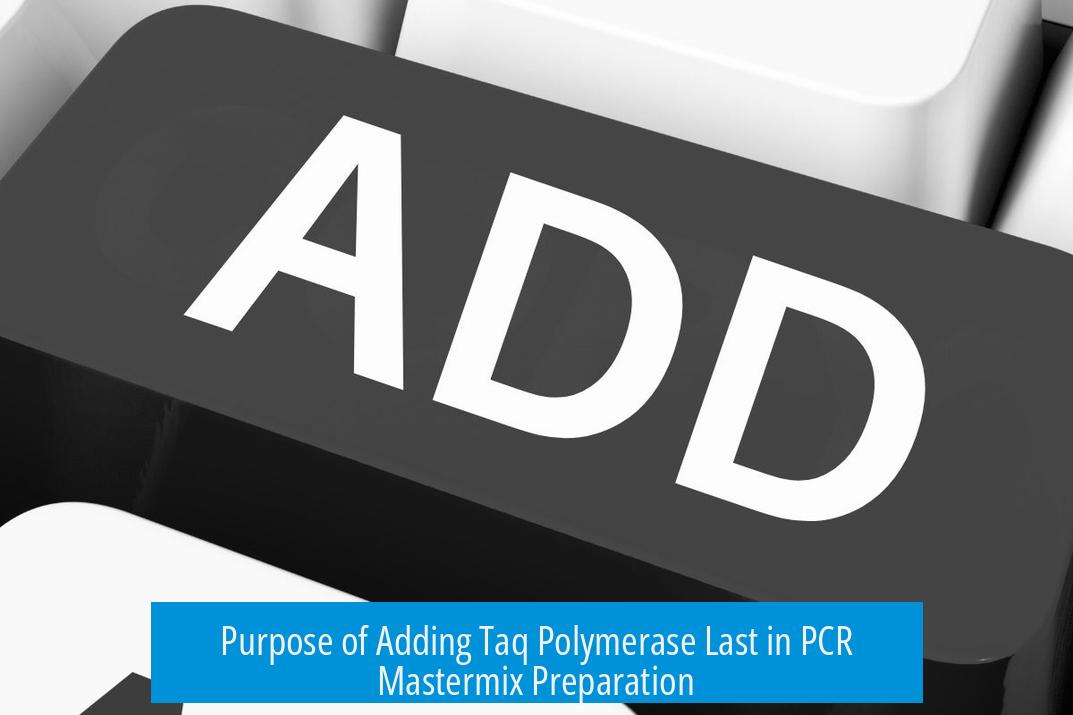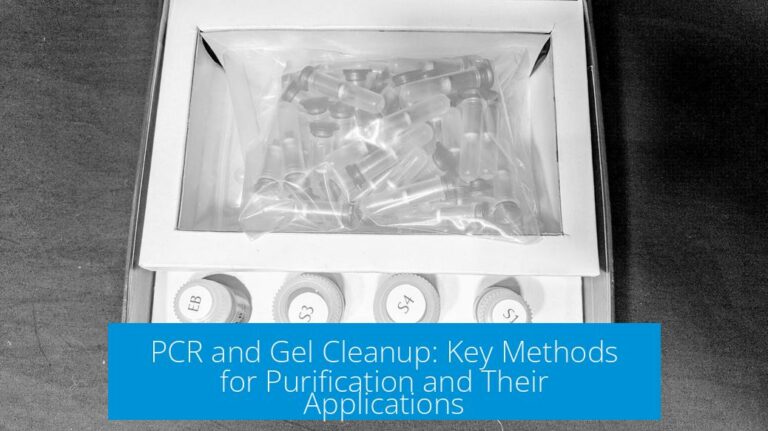Purpose of Adding Taq Polymerase Last in PCR Mastermix Preparation
The primary purpose of adding Taq polymerase last when preparing a PCR mastermix is to prevent premature enzymatic activity, minimize waste of the costly enzyme, and maintain its stability during preparation.
Preventing Unintended Enzyme Activity
During mastermix preparation, adding Taq polymerase last avoids spurious reactions. If Taq is introduced too early, it could start synthesizing DNA prematurely, especially if other reagents are present, leading to nonspecific amplification. This approach aligns with the principle that enzymes should be the final component to avoid unintended catalysis.
Cost Efficiency
Taq polymerase is one of the more expensive reagents in a PCR mix. By adding it last, any errors in measuring or mixing other components can be corrected by discarding the mixture before Taq is wasted. This step saves resources and reduces unnecessary expenditure.
Enzyme Stability and Activity Preservation
Taq polymerase is temperature sensitive. Prolonged exposure to room temperature during mix assembly can reduce its activity. Adding it last decreases the time Taq spends outside cold storage, thus improving the likelihood of consistent and reliable PCR results.
Protocol Consistency and Laboratory Practice
- Standardizing the order of reagent addition reduces human error.
- Maintains uniformity across different preparations and users.
- Reflects long-standing laboratory habits that improve reproducibility.
Additional Considerations
Storing Taq polymerase at -20°C and minimizing handling time help maintain its integrity. Though some practices arise from habit, they often persist because they contribute to consistent outcomes in PCR workflows.
Key Takeaways
- Adding Taq last prevents premature DNA synthesis during mastermix preparation.
- It avoids wasting expensive enzyme if other reagent errors occur.
- Protects enzyme activity by limiting room temperature exposure.
- Supports standardization, reducing user errors in PCR setup.
- Reflects both practical and traditional lab protocols.
Why is Taq polymerase added last in the PCR mastermix?
Adding Taq last prevents unwanted enzyme reactions during mix preparation. It ensures the enzyme only acts when the mix is complete, reducing spurious activity that could affect PCR results.
How does adding Taq last save costs?
Taq polymerase is expensive. If you add it early and make a mistake with other ingredients, you waste costly enzyme. Adding Taq last lets you discard a faulty mix before using the enzyme.
Does temperature affect why Taq is added last?
Yes, Taq polymerase is temperature-sensitive. Adding it last minimizes its exposure to room temperature, preserving enzyme activity during mix preparation.
Is there a standard protocol reason for adding Taq last?
Following a set order like adding Taq last standardizes the PCR process. This reduces human error and maintains consistency across experiments.
Do habits influence why Taq is added last?
Sometimes it is just tradition. Labs do it this way because it worked before. This practice continues even if not always strictly necessary.





Leave a Comment